Today’s guest post comes from a reader that I admire a lot, Mark, who blogs at Maphead’s Book Blog. Mark and I have pretty different tastes in nonfiction, but I admire his throughout reviews and his ability to write about serious nonfiction on serious topics in a way that makes me add to my TBR pile. Enjoy!
Years ago, while attending community college (and before I was kicked out for poor academic performance, proving that yes, a person CAN flunk out of community college) I had a classmate who, in his spare time liked to teach what he referred to as “ground floor karate”. These were very basic lessons he had specially designed for people who had no previous experience with karate or other martial arts. Looking back on that fruitless period of my life I can remember very little. But I do remember his use of the term ground floor to denote a basic level of study.
But even before flunking out of community college, I spent a lot of time in the evangelical church. Like some evangelicals, after going away to college (yes, I eventually did get my act together, academically speaking) and living on my own I slowly drifted away from the church. But as I did, I discovered a whole new world of books about the Bible and religion that looked at things from a scholarly and critical eye.
Every so often I encounter people who might have left their church, or are thinking about leaving. I’ve also met folks who are happy being in their church but would like to get another perspective on the things they’ve been taught. Of course, I’ve also met people who are not religious, but nevertheless would like to learn more about such subjects. To help point all those people in the right direction, I’ve put together a list of five books (and a few follow-up ones) that I think work well for this purpose.
God: A Biography by Jack Miles — In this 1995 book Miles analyzed God in much same way a literary critic would analyze a character in a work of fiction. When I read this book over ten years ago such a method came across as entirely new to me. For a follow-up book I would recommend Harold Bloom’s Jesus and Yahweh: The Names Divine.
A Short History of Christianity by Martin E. Marty — A good buddy of mine attended a Lutheran high school and this was one of his many assigned textbooks. Lucky for me he held on to his copy and years later ended up loaning it to me. This was the first book I ever read that chronicled Christianity’s evolution as a religion. Originally published back in 1960, this short and modest book easily manages to pack a wallop, just like prize fighter punching above his weight. For a follow-up read I’d recommend Christianity: A Global History by David Chidester
A History of God by Karen Armstrong — Armstrong’s book is another great one that shows how Christianity evolved over the centuries. Armstrong, who describes herself as a “freelance monotheist,” in her 1994 book treated Judaism, Christianity and Islam equally, devoting the same amount of attention to each of the three Abrahamic faiths. By doing so, the reader can see how all three are related to, have interacted with and have influenced each other. As follow-up reads I’d recommend two of her later books: Islam: A Short History and The Bible: A Biography.
The Gnostic Gospels by Elaine Pagels — As a result of Christianity’s evolutionary process, certain things were left behind and later forgotten. With her 1995 book Pagels looked at early Christianity’s Gnostic beliefs. Like the other authors on this list, she took material known mostly to scholars and made it accessible to a popular audience. For a follow-up read I would recommend Bart Ehrman’s Lost Christianities.
The Unauthorized Version: Truth and Fiction in the Bible by Robin Lane Fox — When I share this list I usually reserve the and final fifth spot for Richard Elliott Friedman’s Who Wrote the Bible? While Friedman’s book might more succinct and better written, it only covers the Hebrew Bible and not the Christian New Testament. The Unauthorized Version covers both. It’s probably the most comprehensive but approachable book out there when it comes to modern Biblical scholarship. As far as follow-up books besides Who Wrote the Bible I would probably recommend John Shelby Spong’s Re-Claiming the Bible for a Non-Religious World.
All of the books mentioned above are great “gateway” books for those seeking a readable but still scholarly look at God, the Church and the Bible. They are all accessible and can be found in most, if not all public libraries or can be purchased from just about any bookseller. If, after looking at my list you would like to embark on such a journey, I wish you the best of luck. Happy reading.

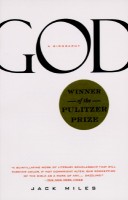
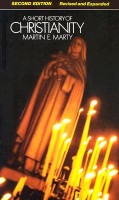
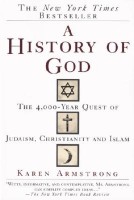
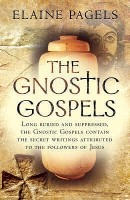
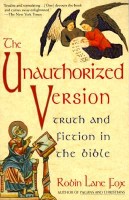
Comments on this entry are closed.
Excellent list, Mark! I’m intrigued and will probably add some of these to my wish list!
Thanks Julie!
Glad I could be of assistance!
I’ve heard of some of these — not all. But I’m especially interested in reading The Gnostic Gospels. Pagels is a great speaker and I’ve enjoyed watching some videos of her throughout the last several years.
I like Pagels too. Have you read her recent book on Revelation? Here’s a link to the review I posted back in Feb. of this year:
http://maphead.wordpress.com/2013/02/14/the-revelations-of-elaine-pagels/
I’ve definitely added a few of these to my list. I love this range of voices we can hear on one (a bit overwhelming) subject to help us each in a better understanding. Thanks!
You are most welcome Nikki!
When it comes to a subject like this, reading a wide range of voices is needed. Not only are these recommendations my opinions, they are part of an introductory list. I would encourage people to read similar material written by atheists, Catholics, evangelical Christians, Jews and others.
Start with a list like this, but don’t finish with it.
Karen Armstrong is such an interesting person. It’s easy to dismiss her when you only know her as “that woman on the videos you watch in history class who is memorable mostly for her incredibly British teeth.” But she actually spent time as a nun before leaving the order while studying at Oxford. During that same time, she began experiencing odd visions, etc. that ended up being diagnosed later as epilepsy — but when you’re dealing with physical and psychological abuse, coupled with extreme religious devotion, things get a bit complicated.
So when you’re looking at books about Christianity, she’s certainly got a unique perspective. I’ve had a few of her books here on my bookcase for several years but haven’t gotten around to reading them yet. Still looking forward to them.
Give her books a shot sometime Susannah, you might end up liking her stuff. Over the years she’s also done a lot of interviews on Book TV, Fresh Air and the Charlie Rose Show. I’d also encourage you to check out one of her interviews, (which I believe can be found online) if you are curious about her.
I need to read the stuff she wrote about being a nun and all the negative things she went through as a young woman. I hear it makes for fascinating reading!
The Jack Miles book sounds really interesting. I’ve read only one book by Karen Armstrong (“12 Steps to a Compassionate Life”) and liked it, but I am also intrigued by Susannah’s comment about Armstrong’s bio and am adding The Spiral Staircase to my to-read list now.
Miles’ book is great and I highly recommend it. If you’re planning on reading stuff by Armstrong, The Bible: A Biography makes a great addition to that list!